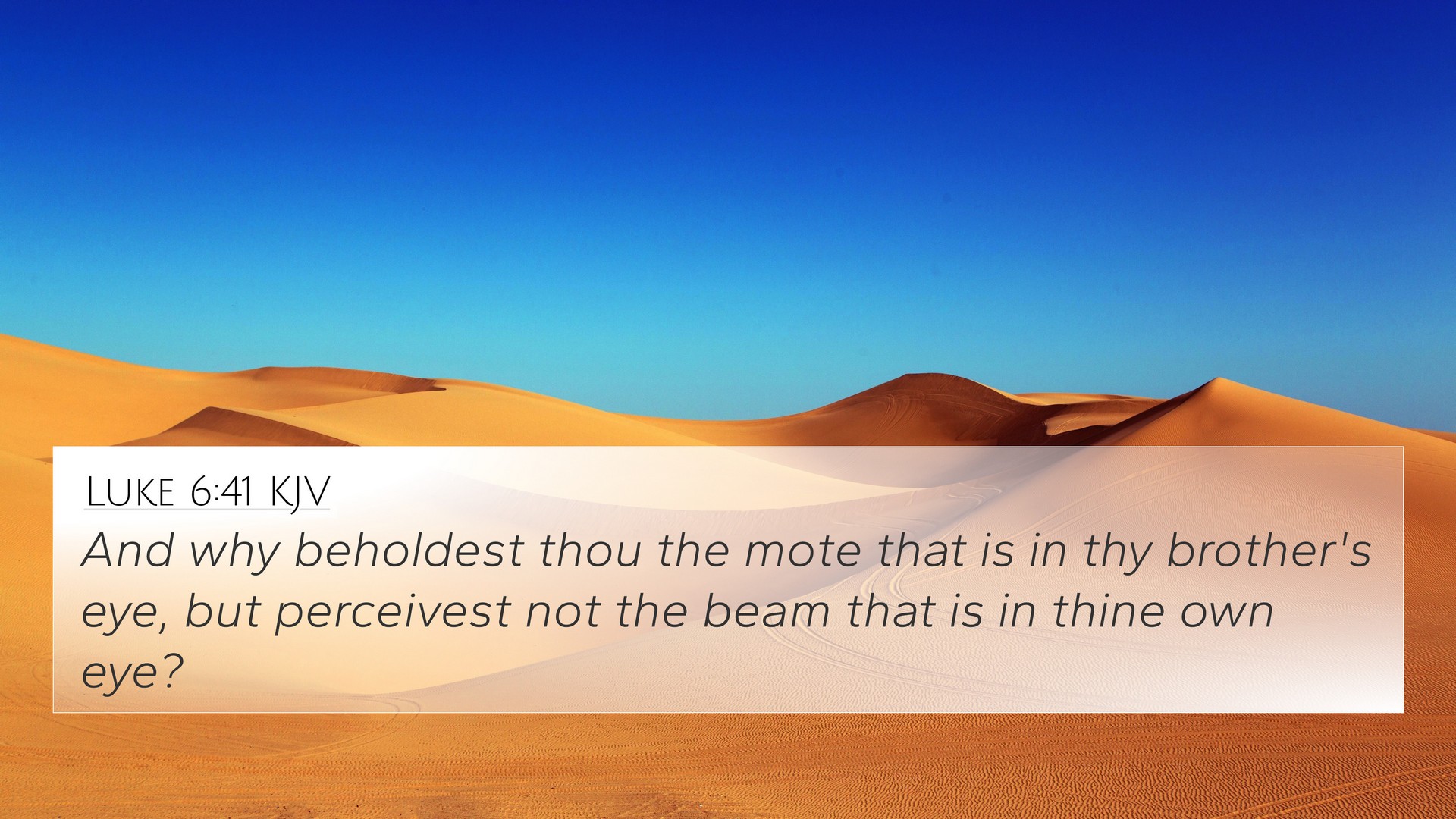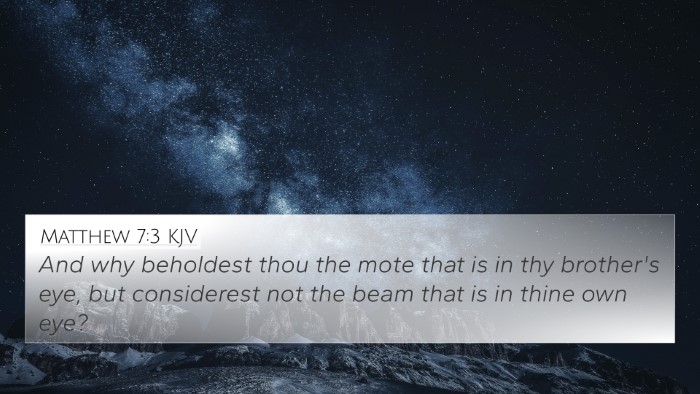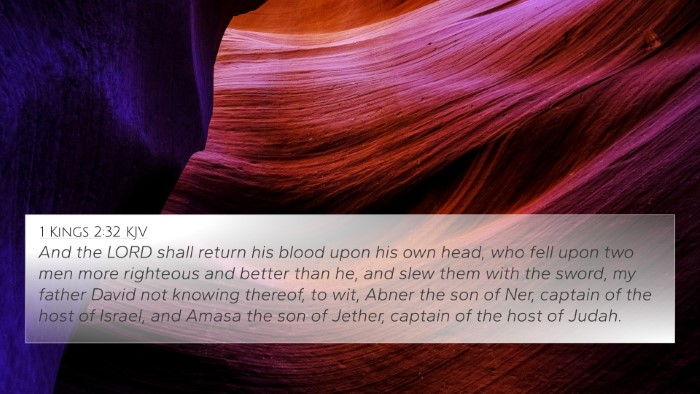Understanding Luke 6:41
Luke 6:41 states:
"And why beholdest thou the mote that is in thy brother’s eye, but perceivest not the beam that is in thine own eye?"
This verse speaks to the hypocrisy of judging others while overlooking our faults. Below is a detailed analysis of its meaning, combining insights from public domain commentaries, including those by Matthew Henry, Albert Barnes, and Adam Clarke.
Summary of Key Ideas
- Self-Reflection: The verse emphasizes the importance of self-assessment before criticizing others. As Matthew Henry points out, it highlights the tendency of individuals to focus on minor flaws in others while ignoring significant issues within themselves.
- Hypocrisy: Albert Barnes notes that the primary concern is hypocrisy, which occurs when one is quick to point out the faults of others without acknowledging their own greater faults.
- Moral Responsibility: Adam Clarke elaborates that the passage encourages personal accountability, suggesting that one should first rectify their shortcomings before advising or chastising others.
Thematic Connections with Other Bible Verses
This verse can be cross-referenced with several other scriptures that relate to self-judgment, personal integrity, and the nature of judgment:
- Matthew 7:3-5: Similar teaching on taking the plank out of one's own eye before addressing the speck in a brother's eye.
- Romans 2:1: Highlights that when you judge others, you condemn yourself, as you do the same things.
- Galatians 6:1: Encourages restoring a brother gently while keeping watch on yourself so that you may not be tempted.
- James 4:11-12: Warns against speaking ill of others, reinforcing the theme of self-examination.
- John 8:7: Jesus's teaching that those without sin should cast the first stone, underscoring the need for humility.
- 1 Peter 2:1: Encourages laying aside malice, deceit, hypocrisy, and envy as part of spiritual growth.
- Proverbs 21:2: Reminds that every way of a man is right in his own eyes, but the Lord weighs the heart, evoking the necessity of divine discernment.
Practical Application
To apply the teachings of Luke 6:41 in daily life, consider the following:
- Practice self-awareness by assessing your own behavior and attitudes regularly.
- Before offering criticism or advice to others, ask if you are setting a good example through your own actions.
- Engage in constructive conversations that emphasize improvement rather than judgment.
- Focus on building up relationships rather than tearing down through criticism.
Conclusion
Luke 6:41 serves as a profound reminder of our human tendency towards judgment and the need for humility and self-awareness. By cross-referencing this verse with related Biblical teachings, one can better understand the importance of removing our own shortcomings before attempting to correct others. This verse encourages inward reflection and a commitment to personal growth, which is a crucial element of Christian moral teaching.
















